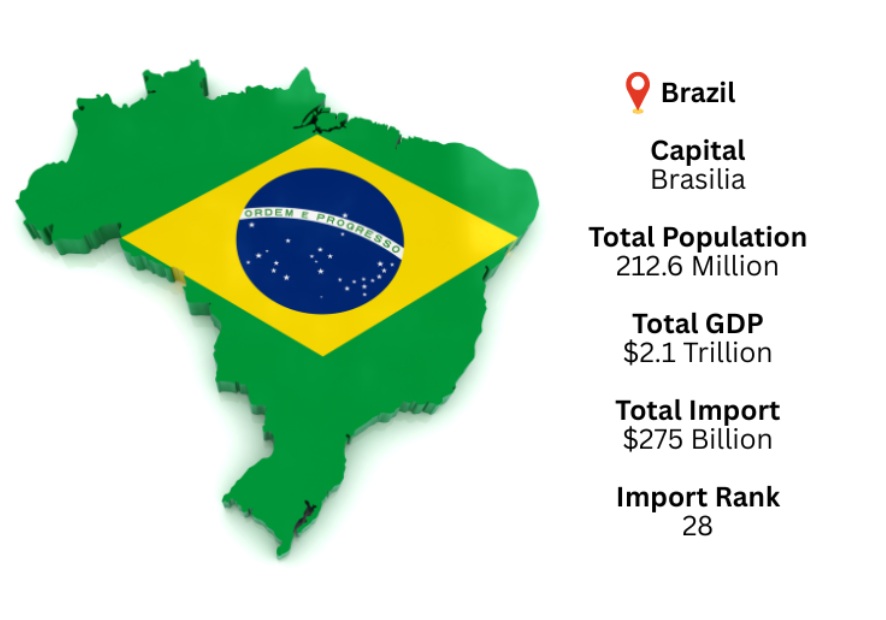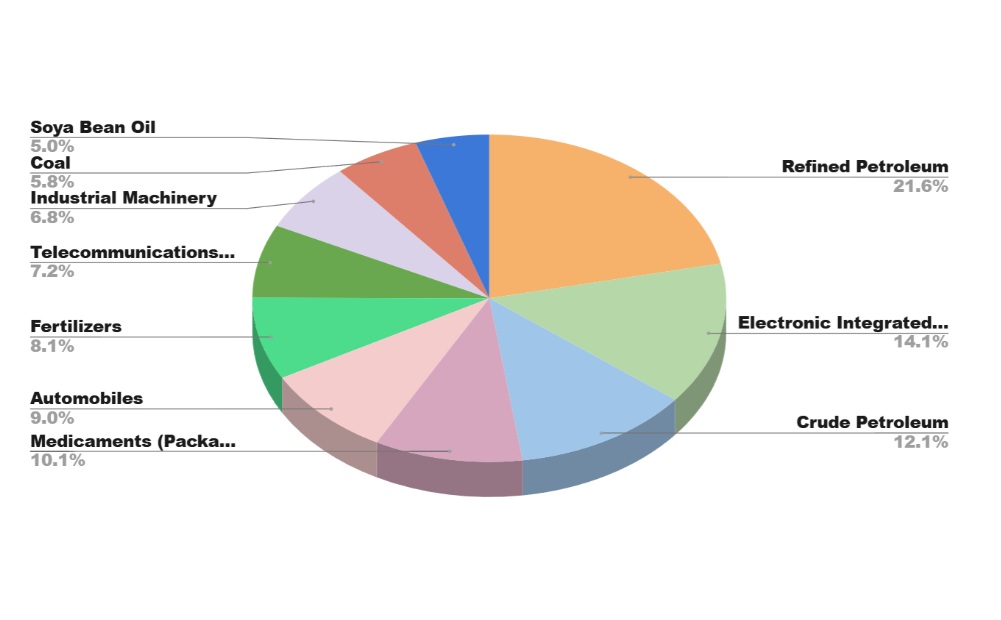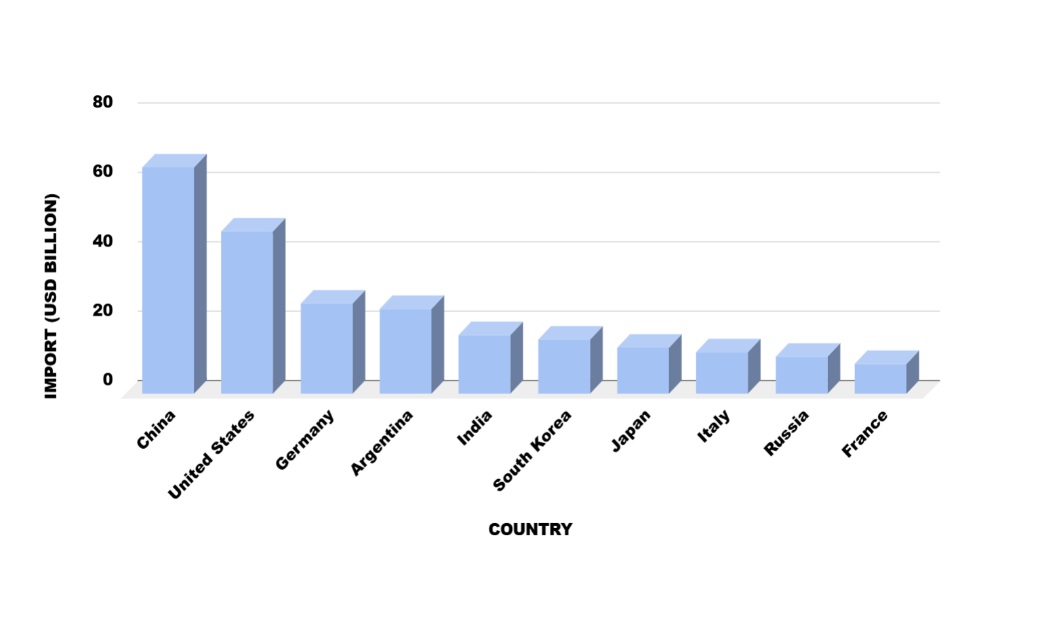Except Chile and Ecuador, all South American countries share borders with Brazil, making it the continent's largest country. The major urban and commercial center is São Paulo, while Brasília is the capital. Brazil is expected to be one of the most significant economies in the Global South by 2024, with a GDP of USD 2.1 trillion. Brazil is now the world's 28th-largest importer. As per Brazil import data, China is the largest exporter, providing a sizable portion of the country's chemicals, equipment, and electronics. It is anticipated that the overall import value would be around USD 275 billion in 2024. In 2024, refined petroleum will be Brazil's top import.
Brazil's varied import portfolio and sophisticated port infrastructure serve to further solidify its position as a significant participant in international commerce. As per Brazil customs data, the nation is a hub for international suppliers due to its advantageous geographic position, robust industrial sector, and growing customer base. Important industries, including manufacturing, agriculture, electricity, and automobiles, are served by imports.



